In 2008, The Dark Knight - the most groundbreaking superhero movie anyone had ever seen - allegorically spoke to Bush era concerns like terrorism and personal liberty and culminated in a tense stand-off between three men on the opposite sides of the ideological divide. Today, the most exciting and satisfying superhero movie we've ever seen - Avengers: Endgame - ends with a bunch of heroes, one of whom hails from an alternate timeline, playing a game of keepaway with a giant powerglove.
Welcome to 2019, a time where there are apparently no limits on how unapologetically geeky mainstream pop culture can get. Currently, the biggest TV show in the world stars a hoard of zombies led by a crowned ruler riding a kick ass ice dragon. The biggest film in the world is the densest and quite possibly most confusing time travel movie of all time.
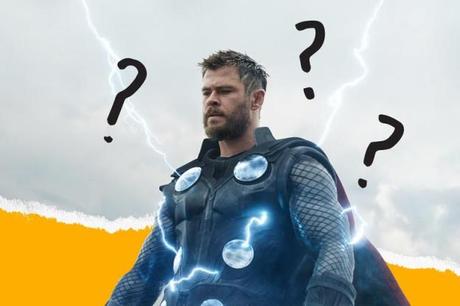
For example, thanks to the events of Infinity War and Endgame Marvel Cinematic Universe characters we have known for years - Loki, Gamora, Vision, and Black Widow - are all dead, seemingly for good. Yet, Endgame also opens the door for alternate timeline versions of Loki and Gamora to carry on. Vision is due to return (with Scarlet Witch) in a Disney+ mini-series in likely even more complicated ways, and we have no idea if the upcoming Black Widow movie will be a Search for Spock situation - a group of her friends seeking to resurrect her - or an origin story prequel OR just an Endgame prequel OR was always a bullshit PR smokescreen just to further surprise us when she dies.
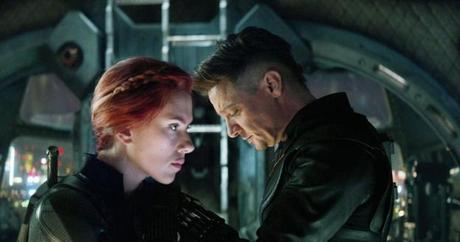
For a movie that was meant to bring the Infinity Saga to a close, Endgame sure does muddy the waters. All of that without mentioning the underexplored ramifications of the film's five-year time jump and deeply confusing time travel rules.
I say that as someone who loves Endgame. Seen the film multiple times now and all of the emotional beats still work for me.
It helps that I grew up on all the same movies and TV shows - Terminator, Back to the Future, Star Trek, Bill & Ted, Quantum Leap - these guys actually namecheck in Endgame. I've been familiar with the idea of convoluted, interconnected narratives from the moment Patrick Stewart sat across a desk from Avery Brooks and gave him the keys to his own new Star Trek spin-off. I've seen all of the MCU movies and will watch many more to come as well as the Disney+ shows.
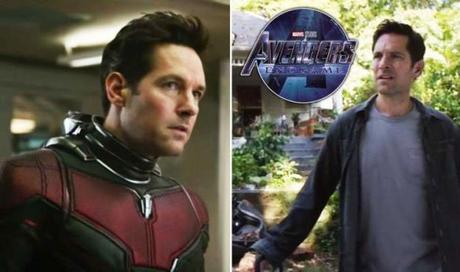
However, I do wonder when or if we'll reach a breaking point. Spare a thought for any poor soul who walks into Endgame having missed crucial prior films like Thor: The Dark World and Ant-Man and the Wasp, which also just happen to be two of the lowest-grossing MCU titles to date. Or, maybe don't offer them any sympathy. The filmmakers sure don't, and honestly, after 11 years, 21 movies, and nearly $19 billion in worldwide gross it's not an unreasonable expectation that anyone wanting to see how that all wraps up needs to have done their damn homework.
The convoluted futureSo, as a once-in-a-lifetime cinematic achievement Endgame is arguably entitled to its denseness, but the state of the MCU going forward is a choice they made. It's one which assumes audiences will remember the following:
- In the next Guardians of the Galaxy movie, the Gamora we see will be someone from an entirely different timeline who didn't meet Peter Quill until they were on the final battlefield together against Thanos.
- In the next Spider-Man - and hat tip to a reader of the site for pointing this out to me - the world will still be recovering from a five-year stretch of existential hell. Beyond that, Peter Parker is supremely lucky that apparently all of his friends were killed in Infinity War and brought back in Endgame, which is how they're all still the same age and in the same class together in Far From Home.
- In Black Widow, the title character is either already dead or not-yet-dead but fated to a grim demise.
- In the Disney+ Loki mini-series, the ole god of mischief will probably be a version of the character from an alternate timeline, plucked out right before the events of Thor: The Dark World. Maybe. In truth, Endgame never explains what becomes of this new version of Loki.
- If the Falcon & Winter Soldier Disney+ mini-series follows the events of Endgame, Sam will have Captain America's shield because Steve Rogers went back in time and stayed there, choosing to grow old with Peggy Carter even though that contradicts the time travel rules in the rest of the film. Last time we saw Rogers, he was an old man sitting on a park bench and he wasn't exactly forthcoming with the details.
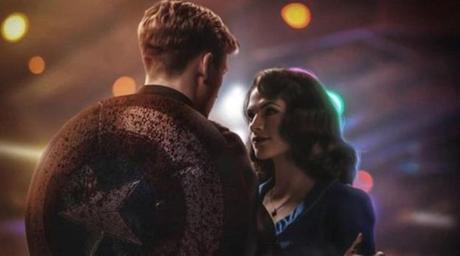
If these seem like pretty big asks, they are, but to quote Shawshank Redemption it's a real "if you've come this far, maybe you're willing to come a little further" situation. The studio that got us to root for a taciturn tree and gun-toting raccoon has already stretched the definition of just how much "weird" pop culture can take and enthusiastically support.
This is also the studio which just made a blockbuster which somehow manages to make no real traditional sense - again, the final battle's game of takeaway falls apart the moment you realize since simply throwing the Infinity Stones into the Quantum Realm will stop Thanos but won't actually fix the timelines - but elicits more tears, laughter and spontaneous applause than just about anything we've ever seen.
That's because Kevin Feige and his filmmakers decided to treat Endgame like a true crossover event comic book. Those usually end with a handful of big deaths, a couple of nods toward the future, and the new integration of characters who previously existed in alternate continuities. So, that's exactly what Endgame delivers. RIP Iron Man.
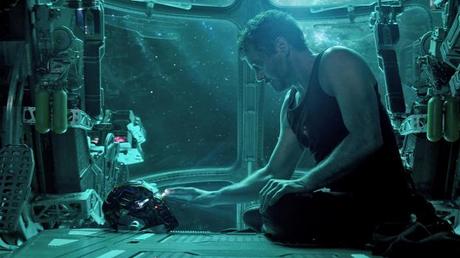
But there's a reason the comic book companies do those events and it's usually to wipe the slate clean of too many years of built-up continuity. They serve as a reward to longtime readers, and what comes after is the jumping in point for new readers. Marvel Studios isn't wiping the slate clean and based on recent box office it has absolutely no worries about losing viewers.
The next ThanosSo, it's only natural to accept the status quo and start looking forward to future films, shows, and eventual integration of the Fantastic Four and X-Men. Let's just geek out already. For example, who gets to be the next Thanos? If all of these movies have to be interconnected by an always-looming larger threat, does that new villain look like the planet-eating Galactus? Adam Warlock? Doctor Doom?
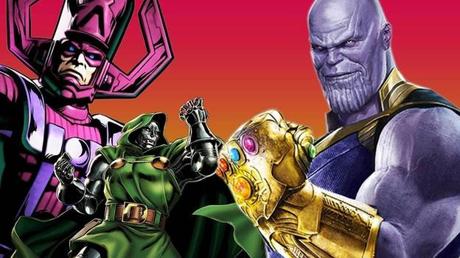
I wonder, however, if the next phase of the MCU will swerve away from that style of universe-building. If not, we are likely stuck in a cycle of perpetually-escalating scale, which is almost unimaginable after what they just pulled off with Infinity War/Endgame. With Spider-Man: Far From Home and whatever comes after it's time to stop and take a breath. Let us live with these characters again. Worry about the next mad tyrant later.
Honor that five-year jumpGiven Feige's preternatural ability to make all the right moves, I imagine that's exactly what they'll do. In fact, giving Loki, Scarlet Witch/Vision, Falcon & Winter Soldier, and possibly even Hawkeye their own 6-episode shows on Disney+ is likely designed to do just as I asked: after the insanity of Endgame, let's actually sit with these characters outside of the confines of a three-act blockbuster. Let's maybe look at the Leftovers-style fallout of a world which lost half its population and then got it back again. Let's explore Wanda's emotional and psychological reaction to dealing with the loss of her boyfriend.
More importantly, let's not rush into the next big thing or to christen a new Avengers team led by Captain Marvel, at least not yet. The events of Infinity War/Endgame are monumentally massive and the need to cobble together so many characters and storylines inevitably forced the filmmakers into some questionable decisions. It's beyond curious, for example, that they made two films in a row in which a female character had to die in exchange for the soul stone and that Black Widow wasn't included in the final funeral. Turning Thor into a series of fat jokes certainly upset a lot of viewers, though I personally had no problem with it. Captain America's send-off strikes many as confusing and rushed, though the final image of Steve and Peggy getting that dance and kiss was all I needed to walk away happy.
Looking ahead, I worry about how convoluted this is all becoming, but I'll be there for Far From Home, Asgardians of the Galaxy, a Valkyrie movie, whatever they do with Black Widow, maybe something actually directed by instead of starring Karen Gillan ...really, I'm putty in their hands at this moment. I still marvel at the amount of truly geeky storytelling mainstream audiences happily support these days, but when the characters are as fun and compelling as the ones in the MCU we're all just along for the ride.
Now, if only someone can tell me if Captain America's Endgame send-off definitively does or does not contradict the film's "parallel reality" explanation for why you can't actually change the past. I'm thinking it does. Vulture says it doesn't.
What do you think? Let me know in the comments.

Grew up obsessing over movies and TV shows. Worked in a video store. Minored in film at college because my college didn't offer a film major. Worked in academia for a while. Have been freelance writing and running this blog since 2013. View all posts by Kelly Konda

